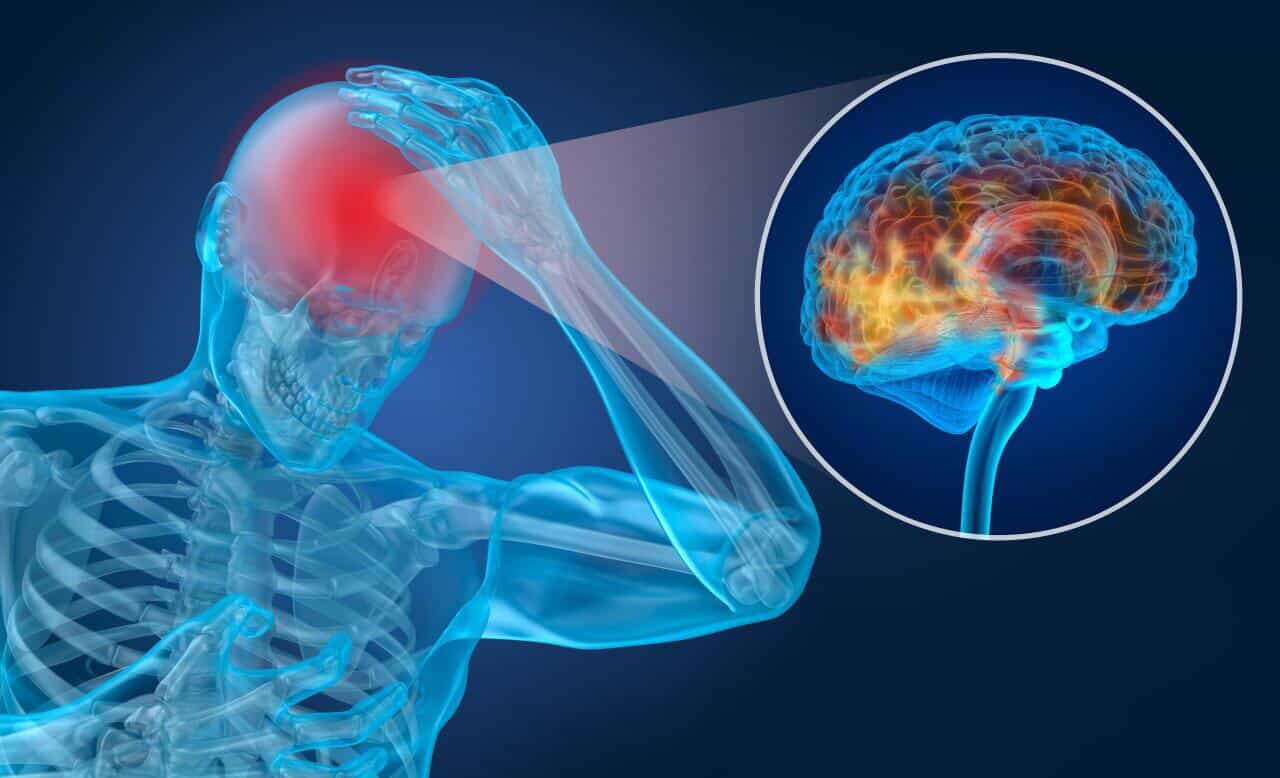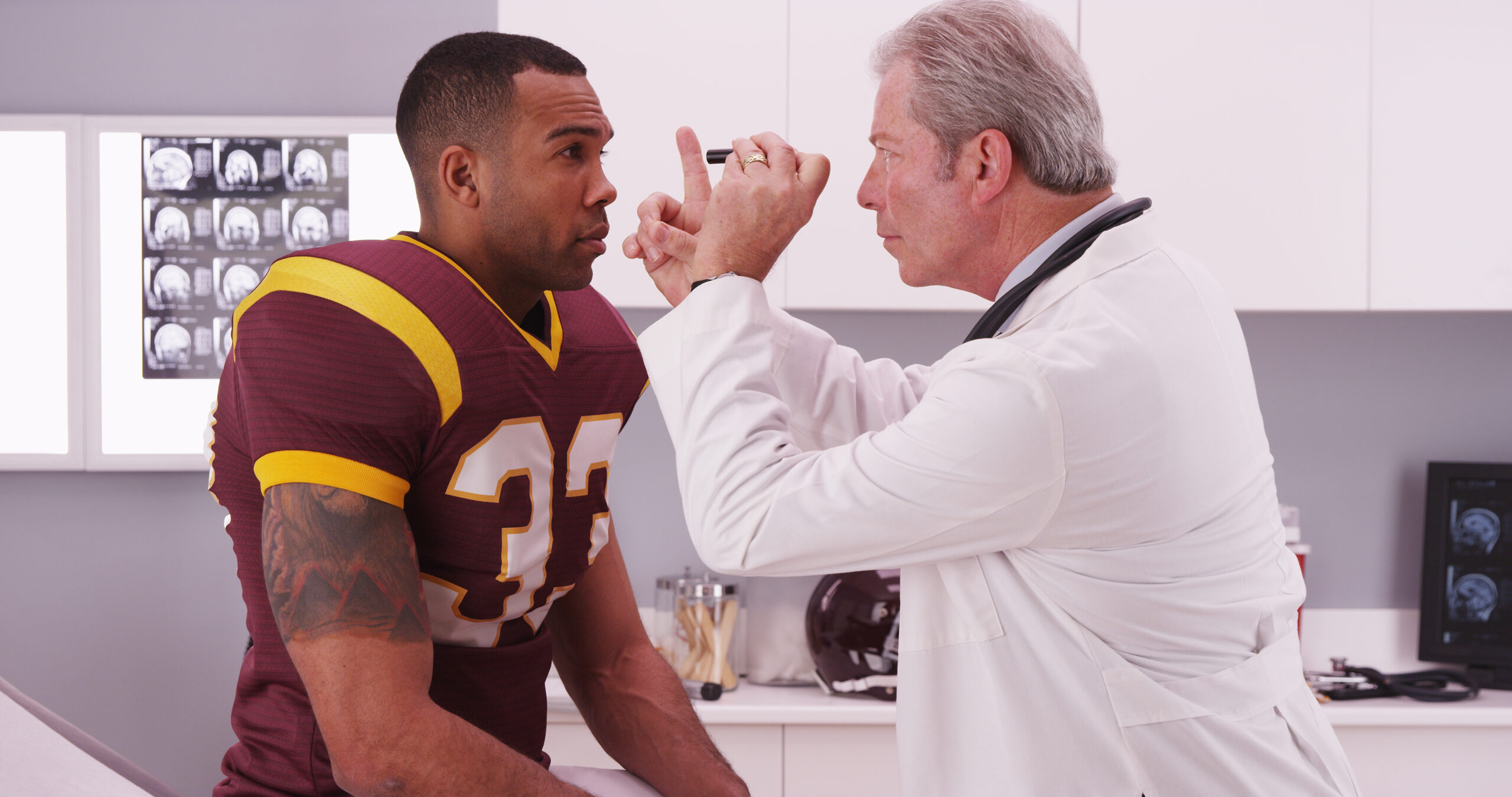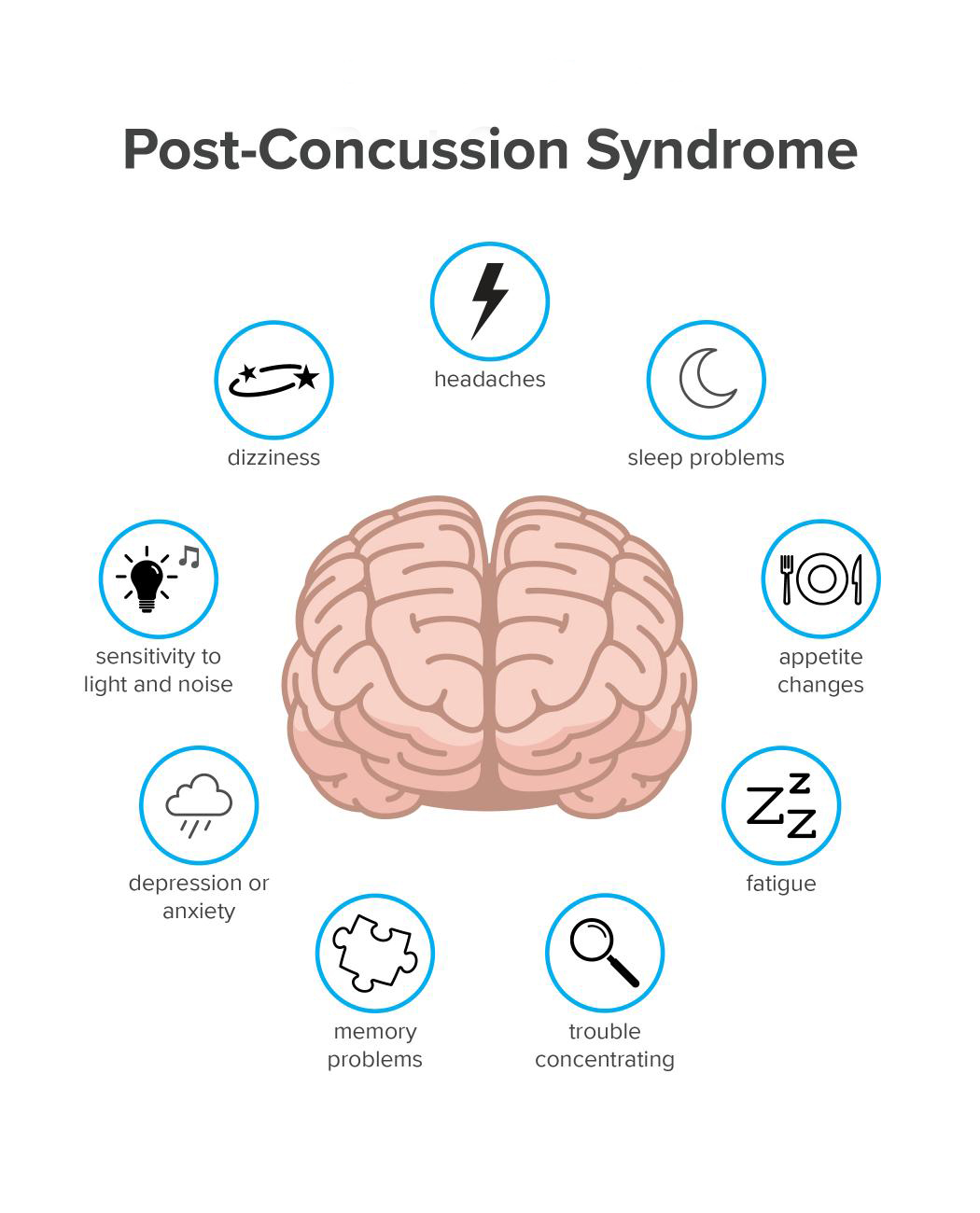
What is a Concussion?
First, it’s important to understand what a concussion truly is and how it occurs. Keep in mind you don’t have to hit your head for a concussion to occur! It can happen just by a big enough hit to the body or a jarring motion that makes your head accelerate then decelerate!
What is occurring when this happens inside the brain is the brain cells (neurons) are getting stretched and during this stretch certain molecules are being let in and other ones are being let out. These molecules changing locations is a normal occurrence when your brain gets sent a signal however your brain did not just get sent a signal…. So now your brain cells are all excited thinking they’ve all received a new message from their crush and they all start giggling like a 13 year old girl, causing mayhem! Then your brain has created an electrical storm and it does not know what to do. Your brain normally requires a lot of energy, so when a concussion occurs and this electrical storm is in full effect, it requires even more energy to try and interpret everything that just happened within these brain cells and calm them down.
This is why a concussion is considered a metabolic injury.
Your metabolic system is your ability to create and use energy and when someone is suffering from a concussion, their body is having to utilize so many more energy molecules to help their brain recover!

Seek help!
The next, and in my opinion most important thing to remember after you’ve experienced a concussion is that it is a TEMPORARY INJURY. You can recover completely! Let me say that again for the people in the back –
YOU CAN RECOVER COMPLETELY!
Knowing that you can recover completely hopefully is a big sigh of relief. But now you want to make sure you take the best steps possible to help you recover fully and as quickly as possible. Generally, a concussion physiologically heals within 22-30 days but people sometimes experience symptoms much longer than that. This is why you don’t want to wait to get in to a concussion specialist to get yourself on track to a full recovery!
Getting into a trained concussion specialist has been shown to improve recovery rate and decrease prolonged symptoms. And research is showing that the earlier you get in, the better! A trained concussion specialist could be a physical therapist, chiropractor, occupational therapist, neurologist, athletic trainer, etc. What’s important is that they have a background in concussion training. If I’m being honest, school alone does not normally focus more than a few hours on this topic unless there is a specialized class that the clinician has taken on the topic of concussion! So when you’re setting up an appointment don’t be afraid to ask for the clinician’s experience in this field!
A rehab/concussion specialist will start by educating you on concussions and what you’re experience to help calm and understand any concerns you are having. (Imaging is not normally necessary as imaging does not show concussion. Imaging may be prescribed if there is concern of a skull fracture, brain bleed, structural damage to the brain, etc but it does not show concussion – just rules out more sinister damage.)
Then they will do some testing to find out what the main culprits (we call them “domains”) of your concussion are. Often with a concussion you are experiencing symptoms from multiple domains but there is normally 1 or 2 main ones that if addressed can help fix the others! The domains of concussion are:
1. Fatigue
2. Visual and Vestibular
3. Cervical
4. Cognitive
5. Psychological

Concussion Domains
Fatigue: When you exercise or get your heart rate and blood pumping with any activity, your brain and body might have trouble regulating this following concussion. Your body may present this regulation difficulty by an increase in your concussion symptoms, including increased fatigue, headache, dizziness, fogginess, confusion, etc!
A rehab specialist will likely test this using something called the Buffalo Concussion Treadmill Test. Don’t be afraid of this test if you’re experiencing symptoms – we’re not going to have you running all out (or at all for that matter!) It’s a simple test where you will walk on a treadmill while your heart rate, perceived exertion level, and symptoms are being monitored. The clinician will then take your results from this test to help determine heart rate that is safe for you to exercise all within a very tolerable range of your concussion symptoms. As your body starts to regulate your blood flow better, your therapist and yourself will progress your exercise routine to get you back to the things you love!
Visual and Vestibular: Inside both of our ears we have something called the vestibular system. It is the system that tells us when we’re speeding up in a moving car or falling over to the right to allow our body to move in a way that will keep up safe. The vestibular system teams up with our eyes to put all of this input together and give the brain an accurate description of what is going on around us and how our body is moving within space. When either one of these systems are A. not working up to par or B. not communicating well to each other and the brain, then we can start to feel symptoms such as dizziness, nausea, headache, fatigue, etc.
A concussion rehab specialist is trained in figuring out if there are deficits in these systems and providing exercises to help get everything working together again!
Cervical (headache/migraine): Your cervical spine is your neck! Many people are surprised to learn that dysfunctions in your neck can lead to the same “concussion” symptoms we’ve been discussing throughout this post. I know I was when I first was being taught this! Even more are surprised to hear that you don’t even have to have neck pain to have your neck be a culprit in your symptoms – so don’t rule out the neck as a cause of your symptoms too early just because you don’t have neck pain!
A therapist will assess your neck to see if there are painful spots, how well your neck moves, as well as how well your neck is communicating with your brain about where it is in relation to the rest of your body. Based off what they find they may use manual therapy techniques such as massage and joint mobilizations, stretching and strengthening exercises, and neuromuscular re-education exercises to help.
Cognitive: Difficulty concentrating, confusion, disorientation….sound familiar? A trained specialist can provide techniques to help you get through your normal day while experiencing these symptoms. Speech therapists and occupational therapists are especially great at this part of the puzzle!
Often times these symptoms are actually caused by one of the other domains because your brain is working so hard to fix these other impairments that it no longer has the energy required to do a task such as reading a book. Therefore, working with your rehab specialist to address the other parts of your recovery can allow your brain to finally direct the much needed energy towards concentrating while at work or just remembering where you put your keys!
Psychological: Anxiety, mood, stress, depression, etc. can all contribute or even be an underlying cause of persistent symptoms.
In the rehab realm, a (physical) therapist can help with breathing techniques and provide other tips and tricks to help calm symptoms when you’re feeling particularly overwhelmed. Most important is finding a mental health specialist in the concussion arena who can help with this side of care! Don’t be afraid to ask your physical therapist/athletic trainer/chiropractor for a recommendation because it is very likely that if they are treating concussions on a regular basis they have a mental health specialist that they love to refer out to!
Big Takeaways
Hopefully at this time you’re noticing that concussion symptoms that were mentioned are very similar if not exactly the same in each domain! So now you’re getting the idea how when you have a concussion there are many things that need to be addressed to figure out the cause of YOUR symptoms!
I hope the big take-aways you learned are this:
1. You can recover fully from a concussion – it is a temporary injury!
2. The sooner you get in to a trained concussion specialist the better!
a. It often takes a team of trained professionals to address the whole system and your rehab specialist will often have recommendations of who to go see that have further concussion background!
3. There are multiple things going on in concussion and figuring out the specific things for YOU and your current concussion symptoms is what will help you feel better the quickest!
References
McCrory P, Meeuwisse W, Dvorak J, et al: Consensus statement on concussion in sport—the 5th international conference on concussion in sport held in Berlin, October 2016 British Journal of Sports Medicine 2017;51:838-847.
Stefano Signoretti, Giuseppe Lazzarino, Barbara Tavazzi, Roberto Vagnozzi: The Pathophysiology of Concussion: PM&R, Volume 3, Issue 10, Supplement 2, 2011, Pgs S359-S368
Harmon KG, Clugston JR, Dec K, et al: American Medical Society for Sports Medicine position statement on concussion in sport; British Journal of Sports Medicine 2019;53:213-225.
Bock, S., Grim, R., Barron, T.F. et al. Factors associated with delayed recovery in athletes with concussion treated at a pediatric neurology concussion clinic. Childs Nerv Syst 31, 2111–2116 (2015). https://doi.org/10.1007/s00381-015-2846-8
Lindsey Doan, DPT

This post was written by Dr. Lindsey Doan in August of 2021.
Learn more about Lindsey on our about page: https://gopt.co/about/